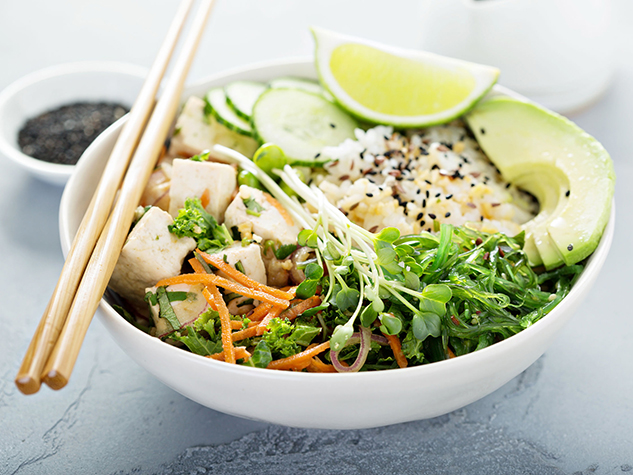 Elsewhere
Elsewhere
 Elsewhere
Elsewhere
Red Meat and the Risk of Colon Cancer
Why does eating red meat increase the risk of cancer?
Red meat may contain chemical compounds that form during processing or cooking. For example, carcinogenic chemical compounds such as N-nitroso compounds and polycyclic aromatic hydrocarbons (PAHs) are formed during meat processing. The cooking of meat also produces heterocyclic aromatic amines as well as other chemical compounds, including PAHs, which can also be found in other foods and in air pollution. Some of these chemicals are known or suspected carcinogens, but even so, it’s not yet clear how red meat increases the risk of cancer.
In conclusion, reducing red meat and processed meats can contribute to reducing the risk of cancer, and it is also beneficial for heart health and for the environment. There is no need to eliminate all red meat from your diet, but increasing your intake of plant-based foods can certainly be helpful. We invite you to explore more plant protein options such as soy and legumes, you might be pleasantly surprised!
To help you, here are some ideas for vegetarian recipes:
Chili Sin Carne
Cheese-topped Mushrooms and Lentils
Quick and Easy Falafel
This recipe recalls the traditional falafel, but can be prepared in just a few minutes.
Quick Tofu and Vegetable Stir-Fry
Tofu and Rice Bowl with Vegetables
Also, don’t hesitate to check out SOSCuisine’s vegetarian meal plans.
References
- Bradbury, Murphy et Key (2019) Diet and colorectal cancer in UK Biobank: a prospective study. International Journal of Epidemiology; (Sous Presse).
- Bouvard et coll. (2015) Carcinogenicity of consumption of red and processed meat. Lancet Oncol;16:1599–600.
- World Cancer Research Fund/American Institute for Cancer Research (2018) Diet, Nutrition, Physical Activity and Colorectal Cancer. Continuous Update Project Expert Report. dietandcancerreport.org
- Vieira et coll. (2017) Foods and beverages and colorectal cancer risk: a systematic review and meta-analysis of cohort studies, an update of the evidence of the WCRF-AICR Continuous Update Project. Ann Oncol; 28:1788–802.
- Organisation Mondiale de la Santé (2015) Cancérogénicité de la consommation de viande rouge et de viande transformée. https://www.who.int/features/qa/cancer-red-meat/fr/
Author


 Canada
Canada  Alberta
Alberta  British Columbia
British Columbia  Manitoba
Manitoba
 New Brunswick
New Brunswick  Newfoundland Labrador
Newfoundland Labrador  Nova Scotia
Nova Scotia  Ontario
Ontario  Prince Edward Island
Prince Edward Island  Quebec
Quebec  Saskatchewan
Saskatchewan  United States
United States  Belgium
Belgium
 France
France  Italy
Italy  Switzerland
Switzerland 








Leave a Reply